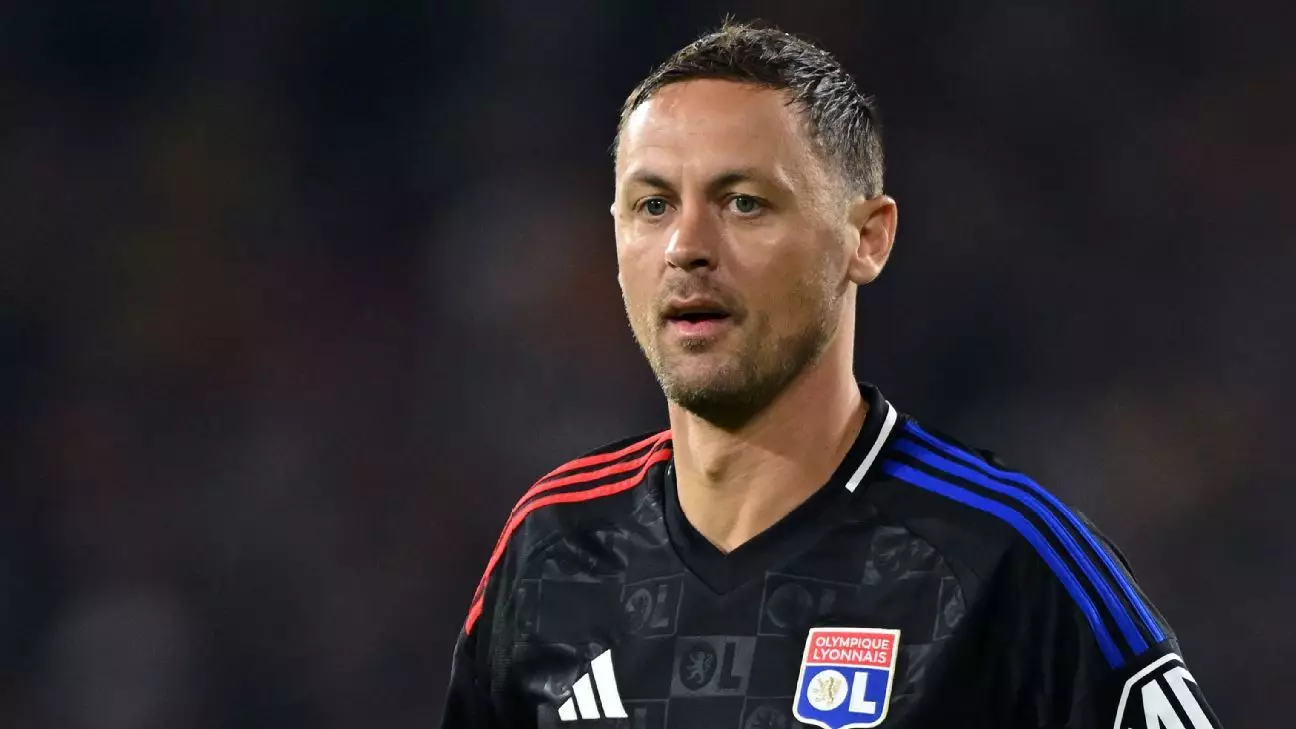The world of football is rife with rivalries, not just between clubs but also within teams, especially when it comes to player performance and legacy. Recent comments from Manchester United goalkeeper André Onana sparked a fiery response from former United midfielder Nemanja Matić, bringing to light a simmering tension over performance standards and legacy within the famous club. These contrasting perspectives highlight an enduring issue in sports: the weight of individual accomplishments versus the collective struggle of a team.
Matić’s Discontent
In a striking retort to Onana’s brazen assertion that Manchester United is “way better” than Lyon, Matić did not hesitate to attack the Cameroonian goalkeeper’s credibility, labeling him as “one of the worst goalkeepers in United’s history.” This wasn’t merely a casual dismissal; it signaled a deep frustration rooted in professional pride and competitive spirit. Matić, who had a spell at United that spanned from 2017 to 2022 without a trophy, is evidently still bearing the emotional mantle of his unsatisfied ambitions.
His comments resonate more than just a defense of his time at United; they unravel the complexities surrounding player reputation and the implications of performance. Onana, who has had his own series of missteps since his high-profile transfer from Inter Milan, is positioned precariously, caught between the expectations of a storied club and the reality of a shaky start to his career in Manchester.
A Goalkeeper Under Fire
The fact that Onana replaced a beloved figure like David De Gea only compounds the scrutiny he faces. De Gea’s legacy is built on years of stellar performances, putting pressure on Onana to not only replicate but also elevate the standards expected at Old Trafford. Criticism of Onana’s goalkeeping can be interpreted as a reflection of the current state of United itself — a club in turmoil that is struggling to find its identity post-Sir Alex Ferguson.
Matić’s harsh words underscore that one’s legacy is not solely defined by personal achievements but also by the collective ethos of the team. His point about accountability — that an opinion can only hold weight if it’s grounded in consistent success — adds an interesting layer to the conversation. In a sport where performance can be subjectively analyzed from so many angles, a goalkeeper’s blunders resonate differently through the lens of a club’s overall disarray.
Onana’s Response: A Determined Posture
In responding to Matić, Onana seems to embrace both defiance and calm. Mentioning the FA Cup trophy he lifted last season, he attempts to reaffirm his position not just as a player but as an emblem of triumph at Manchester United, contrasting his experience with Matić’s trophy-less tenure. But this declaration of success casts a shadow; if Onana’s claim to fame is rooted in prior accolades while he currently performs below expectations, it raises questions about the future trajectory of both his career and Manchester United.
Moreover, Onana’s comment about staying respectful highlights the eternal friction between on-pitch bravado and off-pitch decorum, as players navigate their public personas in what is increasingly becoming a media-centric era of athletics. It’s a modern battlefield where the line between confidence and arrogance is often blurry, and the audience is quick to take sides.
Ultimately, the clash between Matić and Onana is more than just a personal dispute; it mirrors a larger commentary on football culture, performance pressure, and the enduring quest for greatness within one of the most scrutinized organizations in sports. Rather than a mere exchange of words, it represents the diverging paths of player legacies set against a backdrop of fluctuating team fortunes in a sport that thrives on both individual brilliance and collective resilience.

